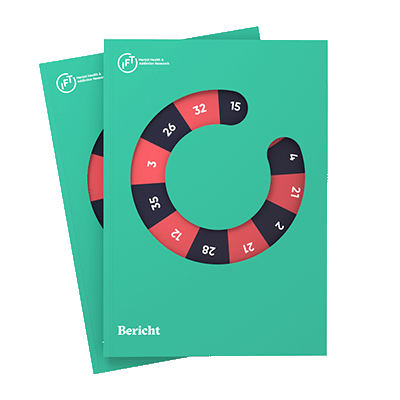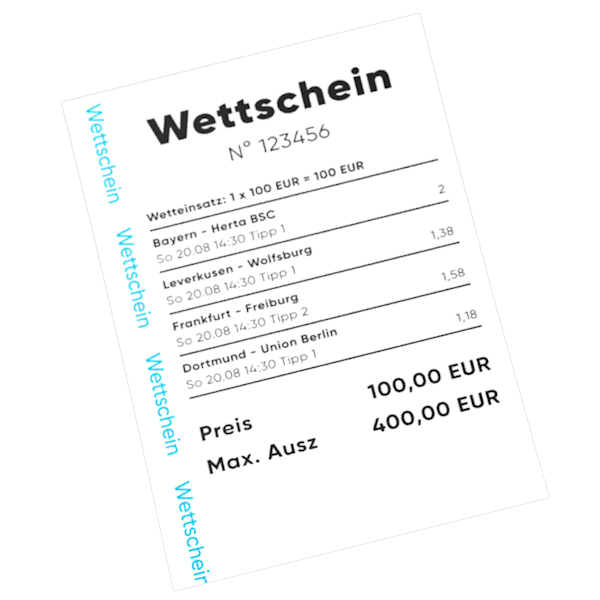Aktuell:
Teilnahmeaufruf: Interviewstudie
„Psychotherapeutische Behandlung bei Glücksspielproblematik“
Online-Kurzfragebogen 1.06.2024-31.07.2024
Mit einem Online-Kurzfragebogen (ca. 5 Min.) möchten wir demographische und berufliche Hintergrundinformationen von ärztlichen und psychologischen Psychotherapeut:innen in eigener Praxis arbeitend oder in einer Praxis angestellt, die Menschen mit Störung durch Glücksspielen behandeln, ermitteln und ihre Interviewbereitschaft abfragen.
Seit der Jahrtausendwende hat sich die Zahl der durchschnittlich in ambulanten Suchthilfeeinrichtungen betreuten Fälle mit Diagnose „Pathologisches Spielen“ mehr als verdoppelt (Stand 2022: 5,7 Fälle pro Einrichtung; Stand 2000: 2,7 Fälle pro Einrichtung). Quelle
Im Jahr 2022 waren 9 von 10 die Betreuungszugängen Männer (88,4 %) und der Altersdurchschnitt lag bei 36 Jahren. Zentrales Problemfeld war das Automatenspiel (in Spielhallen, in der Gastronomie oder online), gefolgt von Sportwetten. Quelle
Jede vierte Person (24,4 %) war mit Summen von über 25.000 € verschuldet. Quelle
Die Hälfte der Betreuten (50,3 %) hatte vor der aktuellen Betreuung bereits suchtbezogene Hilfen in Anspruch genommen und bei rund 3 von 4 Betreuten (71,5 %) haben sich die Glücksspielprobleme bis zum Betreuungsende verbessert. Quelle
In diesem Zusammenhang ist jedoch zu bedenken, dass die ambulante Suchthilfe nur etwa jede achte betroffene Person erreicht. Quelle Aktuellen Schätzungen zufolge erfüllen in Deutschland etwa 2,3 % (1,3 Mio.) Erwachsene (bis 70 Jahren) die Kriterien für eine Störung durch Glücksspielen. Gut ein Fünftel von ihnen weist dabei eine schwere Störungsausprägung auf. Quelle
Zahlen & Fakten
Stand: Januar 2024
88,4%
36Jahre
50,3%
71,5%


AKTUELLE Zahlen
Suchthilfe in Deutschland 2022

AKTUELLE Zahlen
Suchthilfe in Deutschland 2022

Ausstrahlung am 21.6.2023
Interview mit PD Dr. L. Schwarzkopf und K. Landgraf zum Thema Spielsucht


News
Aktuelle Publikationen
Do breaks in online gambling affect neuropsychological arousal? Conceptual approach and lessons learned from the TESSA-pilot trial
Development of gambling behaviour and its relationship with perceived social support: a longitudinal study of young adult male gamblers
‘We are not the ones to blame’. Gamblers’ and providers’ appraisal of self-exclusion in Germany
 88,6 %
der ambulant Betreuten mit einer Glücksspielproblematik sind männlich
88,6 %
der ambulant Betreuten mit einer Glücksspielproblematik sind männlich  36 Jahre
ist das Durchschnittsalter der ambulant Betreuten mit einer Glücksspielproblematik
36 Jahre
ist das Durchschnittsalter der ambulant Betreuten mit einer Glücksspielproblematik  52,5 %
der ambulant Betreuten mit einer Glücksspielproblematik haben bereits suchtbezogene Hilfen in Anspruch genommen
52,5 %
der ambulant Betreuten mit einer Glücksspielproblematik haben bereits suchtbezogene Hilfen in Anspruch genommen  74,9 %
der ambulant Betreuten mit einer Glücksspielproblematik beenden die Betreuung mit einer Verbesserung der Glücksspielprobleme
74,9 %
der ambulant Betreuten mit einer Glücksspielproblematik beenden die Betreuung mit einer Verbesserung der Glücksspielprobleme 
